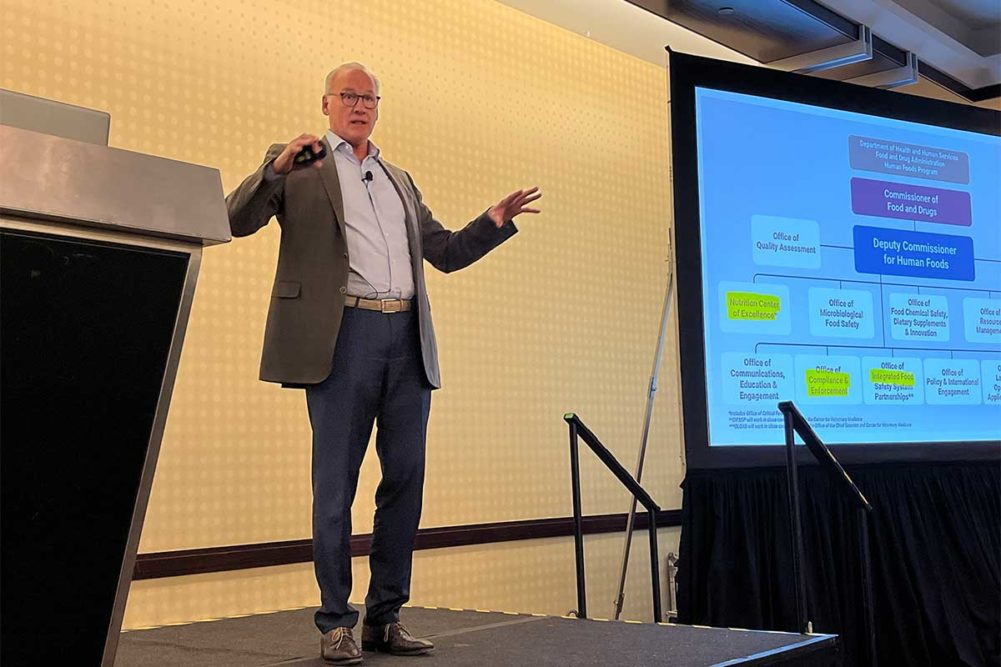DALLAS — Challenges to the snack industry including regulations about sodium reduction, front-of-pack labeling, concerns about ultra-processed foods and more were on the agenda at an education session at SNAC International’s SNX conference, which was held April 14-16.
Martin Hahn, general counsel for SNAC International and partner at Hogan Lovells, spoke at “Surveying the Regulatory Landscape” and covered several topics that could affect snack makers.
The Food and Drug Administration (FDA) is accelerating nutrition policy and food labeling initiatives as the White House has set an ambitious agenda to end hunger and increase healthy eating and physical exercise by 2030 to reduce diet-related disease, Hahn said. The key areas of focus include facilitating lower sodium content in food, front-of-pack (FOP) nutrition labeling, lowering added sugar consumption and more.
The FDA issued voluntary sodium reduction guidance in October 2021, urging 2 1/2 -year goals for sodium reduction for 163 foods. This set maximum recommended sodium levels for individual products in the category.
“I’ve seen a lot of member companies in SNAC particularly where you’ve taken this very seriously, and I applaud everyone who's done that,” he said.
Another FDA initiative involves conducting consumer research on various potential FOP nutritional labeling, which would provide warnings on packaged foods alerting consumers if a product is high in fats, added sugars, etc.
“The most troubling aspect about front of pack labeling? It's the cost it’s going to impose on the industry,” Hahn said. “If you’re going to be talking about a mandatory labeling scheme, every label is going to have to be touched. We’re talking about hundreds of millions of dollars. And that’s an expense that is frequently overlooked. That's something that your (congressional) representatives should be concerned about.”
Another topic Hahn touched on is concerns among consumers and health officials over ultra-processed foods. Part of the concern is that the term lacks a clear definition.
Hahn also talked about how California is banning certain additives that have been approved by the FDA, and other states are considering similar restrictions.
“It makes it really hard to function as a manufacturer of products that are distributed throughout the United States when you have states starting to ban ingredients that the FDA has continued to say can lawfully be added,” he said.





